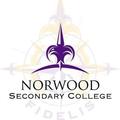Year 9 Electives - Science

Biotechnology
Course Description:
Biotechnology is an exciting STEM field that explores the natural world for inspiration in scientific innovation. Students examine key advancements in biotechnology, from early developments in agriculture and animal domestication, to the discovery of DNA and heredity, and on to modern gene research, genetic engineering, and cloning. They utilise ethical frameworks to analyse the use of modern technologies and historical case studies. Students will also investigate biomimicry - the process of emulating nature’s solutions - by working in teams to plan and develop responses to real-world challenges based on natural systems.
Assessment:
- Webquests and simulations exploring modern technologies
- Student choice project responding to an ethical case study
- Group development of a solution to a real-world problem using inspiration from nature
Forensics
Course Description:
Students will learn the importance of using good scientific techniques to collect evidence from crime scenes. They will be introduced to DNA technology and how to prepare, analyse and report on findings. Students will gain a greater appreciation of the concepts of justice and ethics and how they are important considerations when conducting fieldwork. Students will learn to appreciate the need for Forensic Science and techniques to collect and analyse evidence.
Through a focus on practical science and inquiry skills, as well as scientific ways of observing, questioning and thinking, students will learn how to gather various pieces of evidence to come to a calculated conclusion. Students will match blood and hair samples, identify and take fingerprints, evaluate handwriting and autopsy results, go through witness testimonials and learn how to identify deception in people and use logic to put everything together.
Students will learn and practise the skills of a Forensic scientist. These include:
- Problem-solving
- Looking for clues, making inferences
- Blood splatter
- Gunshot residue
- Chromatography
- Fingerprinting
- DNA analysis and comparison
- Reliability of eyewitness accounts
- Mock crime scene
- Fabric analysis
- Microscopy
- Historical Forensics
- Ethics and Justice.
Assessment:
- Practical Tasks
- Research Assessments
- Case Studies
- Student Presentations
